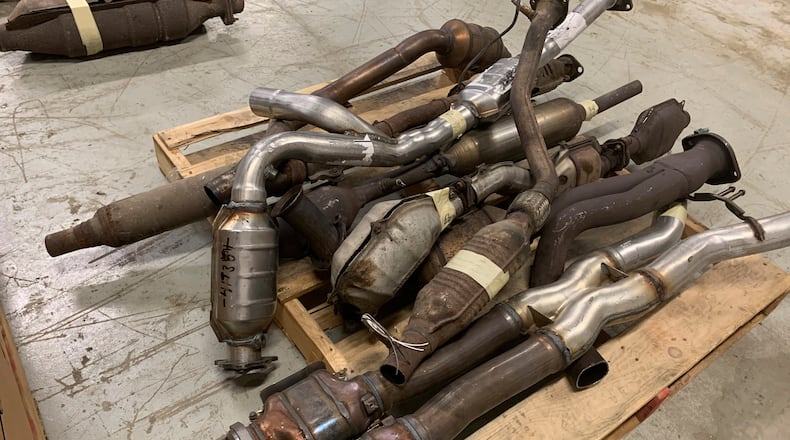Legislation recently was introduced in Ohio to restrict such transactions, Block said, and a number of other states have taken similar steps.
The issue was raised after Mayor Pat Moeller heard concerns about increases in such thefts. An ordinance scheduled to receive its second and final consideration by council next week would make it illegal to possess or sell a stolen catalytic converter. It would be a fourth-degree misdemeanor, with up to a $1,000 fine and as much as a year in jail for each device involved.
Information about the numbers of catalytic converter thefts in the city was not immediately available from the police department. Fairfield Township police arrested a Hamilton man Sept. 12 on multiple felony charges, including breaking-and-entering and theft. He was charged with stealing more than $14,000 in power tools and two catalytic converters.
The law also would limit a person from selling more than one such device per day.
Under the proposed legislation, scrap-metal dealers will have to keep more records of those selling scrap metal, including:
- License-plate numbers of motor vehicles that sellers use to transport metals to the facility;
- A photograph of the seller and the seller’s date of birth and current address, as well as a visual scan of the seller’s valid driver’s license, military ID or other photo ID card issued to the seller by the federal government or any state;
- Photos of the scrap being sold;
- For vehicles or automotive parts, vehicle identification number of that motor vehicle they came from;
- For catalytic converters, the repair order showing when the repair involving the catalytic converter was removed from the vehicle and that vehicle’s identification number;
- For those not authorized to repair catalytic converters, a receipt from a person or company that repairs, overhauls, dismantles, or works on motor vehicles;
- The part number or other identifying number of the catalytic converter that was removed;
- A receipt showing the name and address of the scrap dealer, the date and time the scrap metal was received by the dealer, an accurate description of the scrap metal, and the amount paid for the scrap metal;
- Amounts paid to sellers and the number of the check or electronic transfer used to buy the metal; and
- Signed statements by sellers, under penalty of perjury, that the materials have not been stolen and the seller has a right to possess them.
About the Author

